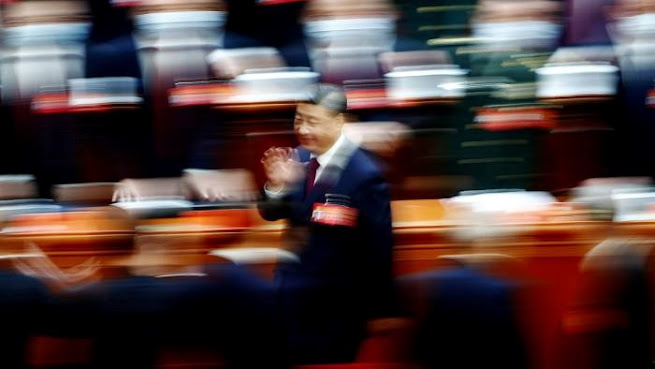The Xi nobody saw coming
China’s hardline leader has reversed his decisions on a wide range of policies, wrongfooting the rest of the world
Ruchir Sharma
 Xi Jinping at the Chinese Communist party congress in October. His government has sounded less Maoist since the event © Mark R Cristino/EPA-EFE
Xi Jinping at the Chinese Communist party congress in October. His government has sounded less Maoist since the event © Mark R Cristino/EPA-EFEIn late October, when Xi Jinping consolidated his hold on China’s communist party at its five-yearly congress, the world cringed.
Xi seemed determined to push China back to the age of Mao Zedong, his role model.
Hardline ideology would tighten its grip on the world’s second-largest economy, with dire implications for the rest.
The last thing anyone expected from a strongman president entering his 11th year in power was a sudden about face.
Yet within weeks, Xi’s government has reversed its efforts to control Covid-19, Big Tech companies, the property market and more.
It has shown signs of reduced support for Russia’s war in Ukraine while easing tensions with the US and in its territorial disputes in the South China Sea.
This softening seemed so uncharacteristic of Xi, some even speculated that he no longer set government policy.
That’s unlikely — at the congress Xi had purged enemies and installed allies throughout the party.
Yet the 180-degree turn on multiple policy fronts was unmistakable and raises doubts about everything the world thought it knew about Xi, the unbending hardliner.
Was he now bending to pressure from worried officials, the public, the deteriorating economy?
The answer may be all of the above.
Xi’s Covid policy, the tech crackdown and the property bust had brought the economy to a standstill in 2022.
The economy appears to have contracted in the fourth quarter, which is likely to bring growth for the year down to 3 per cent.
That is according to official Chinese data — the reality was probably worse.
China has not grown this slowly since the late 1970s and is growing no faster than the rest of the world, also a first since the 1970s.
A performance that weak was a serious threat to an authoritarian state that rests its legitimacy on promises to restore China’s prosperity and its global stature.
As the slowdown fuelled street rallies against the pursuit of “zero-Covid”, some protesters dared to call for Xi to step down.
Officials in his own government were reportedly urging him to save the economy.
Still, few if any China watchers thought the paramount leader would change course.
Those who last more than 10 years in power often grow less flexible, and have worse effects on the economy over time, even in democracies.
Many dictators, from Cuba’s Fidel Castro to Mao, have been snowballing disasters.
The rare, steady reformers include the likes of Singapore’s Lee Kuan Yew, and Deng Xiaoping, who dumped Maoism for pragmatism and set China on the road to prosperity after 1980.
Xi now appears to have moved into a grey area on the spectrum of ageing leaders — willing to reform, at least in the depths of a crisis.
Aiming to revive the economy after the congress, Xi’s government started sounding less Maoist.
It has dropped the “three red lines” on borrowing by developers, and announced that the “rectification” campaign against fintech firms is nearly complete.
After tightening state control for years, it is sending out messages of support to the private sector, even offering details of its new global data market that suggest respect for private data ownership.
The irony: Xi may be trying impractically hard to revive growth.
His plans to build “a modern socialist economy” imply an annual gross domestic product growth target of 5 per cent, which is no longer possible.
China’s population growth has slowed sharply, as has productivity growth.
With fewer workers and slumping output per worker, the country’s potential growth rate is 2.5 per cent.
Beyond this year, when spending by Chinese consumers released from lockdown may temporarily boost growth, 5 per cent is an unrealistic target.
And more debt-financed spending will only increase China’s already massive debt load.
Global investors, who so often blow hot and cold on China, have again flipped — this time to embrace the new Xi.
Before November, the country’s stock market was tanking with the economy.
Fund managers were launching emerging market mandates excluding China.
Now, they are bullish on hopes of a post-pandemic “reopening” bounce and have been pouring money into Chinese stocks.
The benchmark MSCI China index is up a staggering 50 per cent since the late October lows.
Yet the questions about China’s policy direction remain.
Xi’s pivot is a pragmatic course correction, but it raises doubts about his steadiness.
His impulse to control may reassert itself when the economy starts to recover — a reflex much more common in ageing leaders than a full rebirth as a steady reformer.
Still, we should celebrate this new Xi, if he lasts — he’s a lot better for the world than the old one.
The writer is chair of Rockefeller International
0 comments:
Publicar un comentario